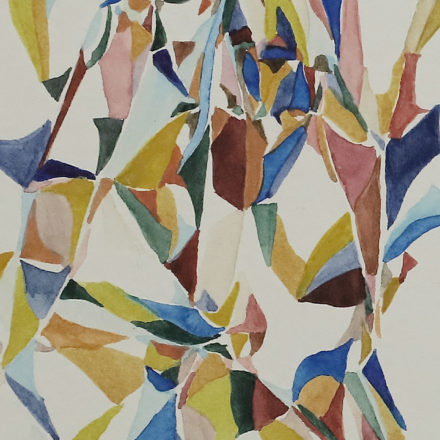On 13 May 2022 the High Court did not monkey around when granting an urgent injunction against a legendary Bored Ape NFT. The High Court has now published its reasoning (Janesh s/o Rajkumar v Unknown Person (“CHEFPIERRE”) [2022] SGHC 264). In its ground breaking decision the High Court recognised the NFT as property, fitting within a 1965 English law definition of property and following a similar decision in England earlier this year (Osbourne v Persons Unknown). On a practical level this ruling reassures owners of NFTs the world over: your NFT has given you legally enforceable rights and is to be treated in the same way as rare art, watches, or other collectors’ items…at least in Singapore and England.
What is a Bored Ape? Where is the Yacht Club? Have we all gone bananas?
A Bored Ape is a unique graphic of a cartoon ape. Technically, it is non-fungible token built on the Ethereum blockchain. Owning a Bored Ape gives you the NFT, access to the “Bored Ape Yacht Club”, i.e. a community of other Bored Ape owners (read: there is no physical Yacht Club, but the BAYC parties don’t leave much to be missed), and associated rights, e.g. to the intellectual property of the graphic, thereby allowing you to produce merchandise with your Ape on it. It is also just incredibly cool to some.
Isn’t this all a little bananas? Is a cartoon ape really worth suing over? Let’s look at the numbers: the Bored Apes launched in April 2021 for 0.08 ETH (~US$190) each. Today, the floor price for an Ape is closer to US$100,000, with the entire collection of the 10,000 Apes being worth about US$1 billion.
Why is this judgment important?
This judgment gives NFT owners the security that their rights over the NFT are proprietary. While in theory, an NFT has always given you rights to the digital artwork (and the intellectual property that underlies it), the enforceability of that right has not been tested previously in Singapore. The Singapore Court has now made clear that NFTs will be treated in the same way as other property: they can be injuncted, and they can be enforced against. Fraudsters will not be able to dupe owners out of their digital artwork, on the premise that courts won’t be able to do anything about stolen digital assets.
The factual background to the judgment was this:
- The Claimant pledged his Bored Ape to chefpierre.eth (“Chef Pierre”), by transferring it to an escrow agent. The escrow agent operated a smart contract that allowed unilateral foreclosure for non-repayment, although the Claimant and Chef Pierre separately agreed that the Ape could only be held in escrow pending repayment, but never foreclosed upon (despite the escrow platform’s smart contract functionality);
- In exchange, Chef Pierre granted a loan of 45 ETH, for 90 days, at an interest rate of 33% per annum.The loan was repaid;
- A further loan was granted for 150,000 DAI, for 30 days, at an interest rate of 45% per annum, on the same terms;
- The Claimant and Chef Pierre were in the midst of discussing refinancing of the further loan, but ultimately Chef Pierre refused to refinance the loan, and instead exercised the unilateral foreclosure option and took control of the Ape, contrary to the side agreement with the Claimant. Chef Pierre then listed the Ape on Open Sea (an NFT trading platform).
The Claimant applied for an injunction to prohibit the Unknown Person (i.e. Chef Pierre) from dealing with the Ape pending trial, and to serve the court papers by Twitter, Discord, and messaging platform for the Defendant’s crypto wallet. The Court granted the injunction.
The Court held:
- It had jurisdiction as the Claimant was Singaporean, carried on business and owned property here, and entered into the transactions concerning the Ape in Singapore.The Court held this to be correct despite the difficulties that “the decentralised nature of blockchains may pose … when it comes to establishing jurisdiction”;
- It can grant an injunction against a person unknown, as the unknown person is sufficiently described;
- NFTs are capable of being described as property. They are not “mere information”. NFTs are definable, they have a recognisable owner, rights capable of assumption, and some degree of permanence.
While this is a welcome outcome, the Court did warn that the injunction had been made ex parte and that the Court had not yet had an opportunity to hear fuller submissions by both sides, which may result in a different conclusion.
This judgment is but the next step of the evolution of the law in this area. The Courts in the United Kingdom, Singapore, Hong Kong, and New Zealand have been at the forefront of developing the law to recognise cryptocurrency as property, and this evolution has now extended to NFTs.
Why should I give a monkey’s about this development?
This judgment is a milestone for:
- Digital asset owners;
- Exchanges and other digital asset intermediaries;
- Venture capital and other asset management funds who own digital assets or digital asset companies within their portfolio.
For each of these groups, the value of your digital asset ought to have improved with the increased certainty of enforceable rights. Does this mean 100% protection? Unfortunately, not. As we have seen at every instance of evolution of the security of assets, fraudsters become more sophisticated as well. Don’t make a monkey of yourself – due diligence is as important in transactions regarding digital assets as traditional assets. Stay tuned for our upcoming webinar on Protecting Against Digital Assets Fraud.








